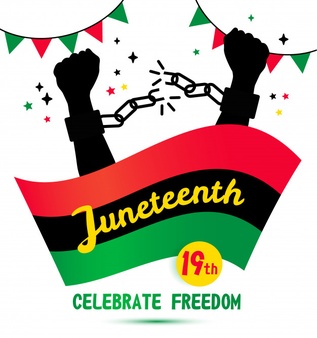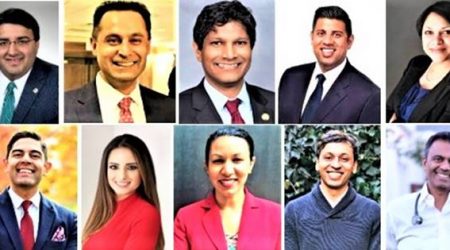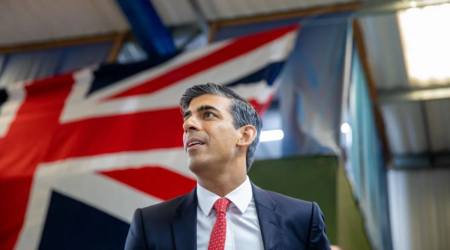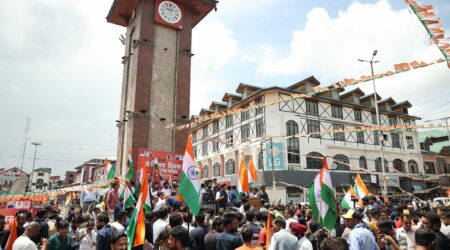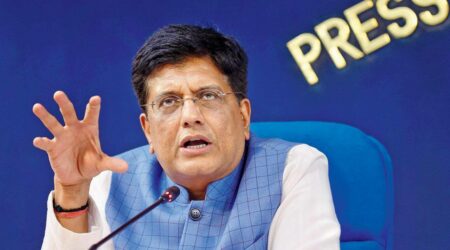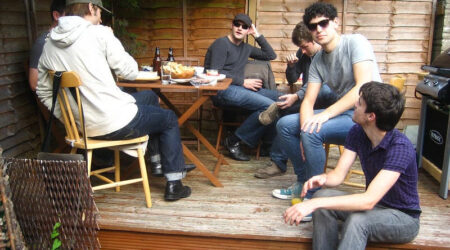By Samir Durvasula
All across the United States, students are taught these words of the Declaration of Independence: “We hold these truths to be self-evident, that all men are created equal, that they are endowed by their Creator with certain unalienable Rights, that among these are Life, Liberty and the pursuit of Happiness.” And while July 4th is still celebrated as Independence Day every year, we know that those words “all men are created equal” was really limited to land-owning white men.
It took another 87 years, culminating in 1863 with the Emancipation Proclamation, for President Abraham Lincoln to declare all enslaved people (in the states that had seceded) to be free. That freedom had to wait till the Civil War ended. On June 19, 1865 General Gordon Grangers ordered the enforcement of the Emancipation Proclamation in the holdout Texas. This day has since been memorialized as “Juneteenth.”
Juneteenth has become a symbol of Black liberation, of the potential for all Americans to be truly free. The fight for true freedom continued through Reconstruction, which saw the creation of “Black Codes,” which allowed states to deny formerly enslaved people their rights. These codes evolved into the restrictions of the Jim Crow Era. Even after the Civil Rights Movement of the 1960s, this fight continues.
Empowered by the clause in the 13th Amendment of the U.S. Constitution, which bans slavery “except as a punishment for crime whereof the party shall have been duly convicted”, Black people are incarcerated at more than 5 times the rate of white people.
One form of this oppression is that that police brutality is rarely condemned by the courts; rather, we have consistently seen the devaluation and destruction of Black lives — like those of George Floyd, Breonna Taylor, Tony McDade, Ahmaud Arbery, Rayshard Brooks, Trayvon Martin, Laquan McDonald, Tamir Rice, among so many others — to maintain the status quo.
As Hindus, we know that this is not right, it is not nyaya, or justice. Our sacred stories teach us of the transformative power of karuna and ahimsa. One needs to look no further than the story of Ratnakara, a robber. One day, he targeted the celestial sage Narada. Instead of punishing Ratnakara, Narada taught him a path to salvation, chanting Rama. Ratnakara was transformed into Valmiki, the rishi who composed the Sanskrit Ramayana.
Our sacred texts teach us to oppose practices and policies that harm any community. In one verse of the Gita, Shri Krishna emphasizes that the path to liberation, requires working for, and actually rejoicing in the welfare of all beings.
As Hindus, we are told to act in solidarity with those who face injustice and oppression. We are called to be para-dukha-dukhi; to feel another’s pain as our own. We are taught to see the divine spirit (ātman) that is present equally in all beings. As personalities like the n19th century Jewish activist Emma Lazarus, Rev. Dr. Martin Luther King Jr., and poet Maya Angelou all famously said in one way or another, “No one is free until we are all free.”
This is why we, the Browns, need to ensure space for Black people to celebrate Juneteenth, recognize Juneteenth as a true Independence Day, continue to amplify Black voices, and reaffirm that Black Lives Matter. So around Juneteenth, make sure to reflect on your own position in this dharma-yuddha, or righteous struggle, and show solidarity. Remember that action can take many forms: protesting if you feel safe, educating yourself, donating to Black grassroots organizations and bail funds, writing, making art, having uncomfortable but important conversations with your family, and more. Analyze your own strengths and your abilities (your svadharma), self-reflect, and follow those strengths to drive change forward.
A Cornell graduate, Samir Durvasula is Board Member of Sadhana, which empowers Hindu American communities to live out the values of their faith through service, community transformation, and targeted advocacy work.


